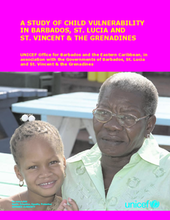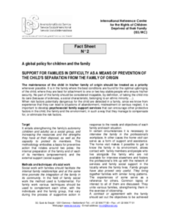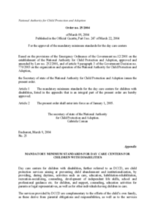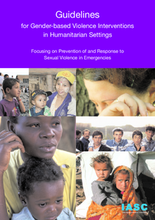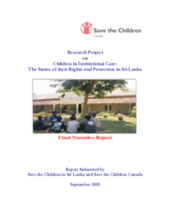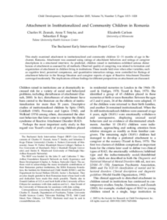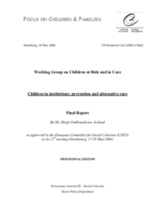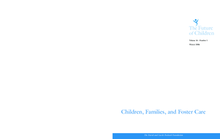Displaying 1691 - 1700 of 1798
The TransMONEE statistical tables display indicators of human welfare in the 27 countries of CEE/CIS and Baltic States. Population, natality, maternal and child mortality, health, education, child protection and economics serve as the key indicators.
This paper examines childcare policy in Mozambique. It finds that vulnerability increases when orphans are placed in resource-poor kinship care arrangements.
Country-based analysis of child vulnerability in Barbados, St. Lucia, and St. Vincent & the Grenadines. Includes statistical and demographic data on vulnerable populations. Identifies specific barriers to meeting regional needs in child protection.
Brief summary of the importance of social work in preventing family separation, including increasing empowerment, social support and self-assessment processes.
Outlines minimum standards for the operation of a day care center for children with disabilities in Romania.
Comprehensive guidelines for dealing with the planning, establishment, and coordination of multisectoral interventions to prevent and respond to sexual and gender-based violence.
A situation analysis of children in institutional care that includes policy implications and key recommendations.
This study examined attachment in institutionalized and community children 12 – 31 months of age in Bucharest, Romania.
A comparative analysis of protection and care systems across Europe, focusing on the use of institutions, alternative forms of care placements, family support services, and the role of social workers in the process of child placement.
In assessing the practice of foster care in the US and its current limitations, this series of articles advocates for the implementation of health assessments for all children in care, support to preserve permanency and assist birth families, comprehensive supports for foster families, specialized services for children in need, increased cultural competency in social work practice, coordinated services across sectors for families in need and comprehensive well being assessments for children in care.

